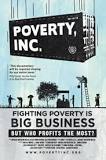 I haven’t written about a book or movie for awhile, which doesn’t mean that I haven’t been reading or watching anything. I’ve been wending my way through a hefty history of Rome which will show up at some point, and we’ve recently watched nine of the 10 episodes of ‘Making a Murderer” on Netflix. I don’t think I’ll be recommending that one–what a downer!
I haven’t written about a book or movie for awhile, which doesn’t mean that I haven’t been reading or watching anything. I’ve been wending my way through a hefty history of Rome which will show up at some point, and we’ve recently watched nine of the 10 episodes of ‘Making a Murderer” on Netflix. I don’t think I’ll be recommending that one–what a downer!
So what’s the deal? Simply this: Most of our giving to the poor, whether it be our tax dollars going to Haiti or our used clothing going to Goodwill, is done out of a desire to make ourselves feel good. Gulp. It’s not so much that we want to help others as that we want to feel superior and smug. We think we’re doing the right thing, but we don’t think it through. So, for instance, it never occurs to us that when we drop off a bagful of clothes at a local branch of some charity that most of them will never be sold. Who really wants that stained T-shirt? If it’s too far gone, it will be shredded and made into rags. But if it’s at all wearable, and it doesn’t sell or isn’t deemed sellable to begin with, it will be shipped off to a so-called Third World country, usually in sub-Saharan Africa, where it will help destroy the local textile manufacturing industry. Why buy something new when you can get something for free, or almost free? So that T-shirt actually helps perpetuate poverty, not relieve it. (I had heard a story on the radio about this very issue several years ago. Have I still taken in bags of discards to our local Goodwill since then? Yes, I have. What am I going to do from now on? I’m not sure. Goodwill does employ people to sort and tag those clothes, and take them to warehouses, and squash them into cubes, so there is some good being done out of all this. But the process as a whole is overwhelmingly wasteful and counterproductive. For me, at least, the best avenue seems to be careful selection and long wear, with a refusal to make Goodwill do my discarding for me. If it seems destined for a cube, maybe I’d be doing better to just . . . throw it away.)
In addition to the false sense of superiority that much of our charitable giving generates, it must be said that a true ending of poverty, brought about by truly helping people help themselves, would put an awful lot of people out of jobs, those who work for the various nonprofits, charities, NGOs, whatever. Again, do many of these people think they are doing something worthwhile? I think they do. But they’re also making a very good living from these organizations. Our old friend Theodore Dalrymple appears several times in the movie; his comments are as always acerbic and spot-on. I told my husband, “We need to read every single book he’s written.” You should see more books by him in future posts; if you didn’t read my recent blog about his Admirable Evasions book , please do so. It’s not directly about poverty but about how we refuse to make people responsible for their own choices by labeling their behavior in various ways.
The film is being screened by educational and community groups. You can go to the website, PovertyInc.org, to see a list of upcoming events or to find about booking a screening yourself, perhaps through your church or other organization. At some point I expect that they will make it available online; for now you can watch the trailer here or here. And then think about what you can do, not to make yourself feel good but to be truly helpful. I have struggled with this issue myself over the past few years, wanting to get involved with a local residential home for at-risk girls but getting nowhere. (In fact, my entire history of volunteering is pretty spotty.) So where to go, what to do? A lot of thought and prayer, and then useful action, is called for.
In the meantime, here are three books to consider reading:
The Big Truck that Went By: How the World Came to Save Haiti and Left Behind a Disaster by Jonathan Katz, a reporter who was actually in Haiti when the earthquake hit.
Travesty in Haiti: A true account of Christian missions, orphanages, fraud, food aid and drug trafficking by Timothy T. Schwartz, an anthropologist who is interviewed extensively in the film. Based on the samples I’ve read on Amazon, this is not an easy read. But he was there, and he tells what he saw. We’ve ordered a copy.
Overdressed: The Shockingly High Cost of Cheap Fashion by Elizabeth L. Cline, about the used-clothing business. Read an article she wrote for Slate, “The Afterlife of Cheap Clothes.”
An informative movie that makes you realize that sometimes starting an orphanage is a really bad idea.